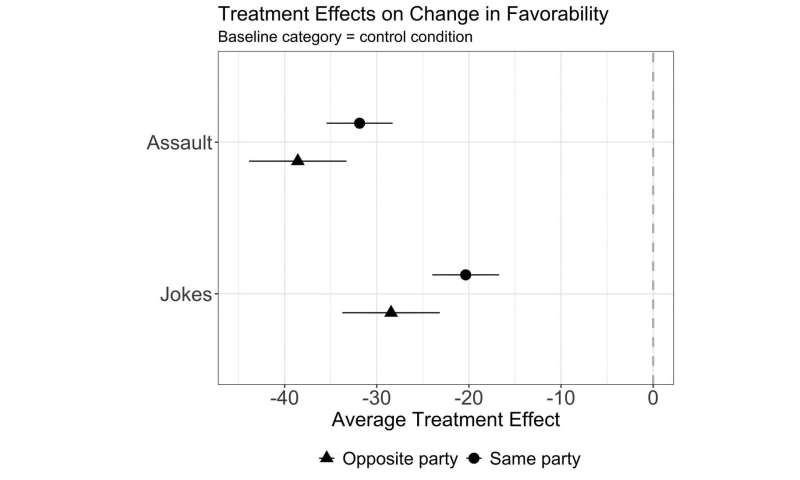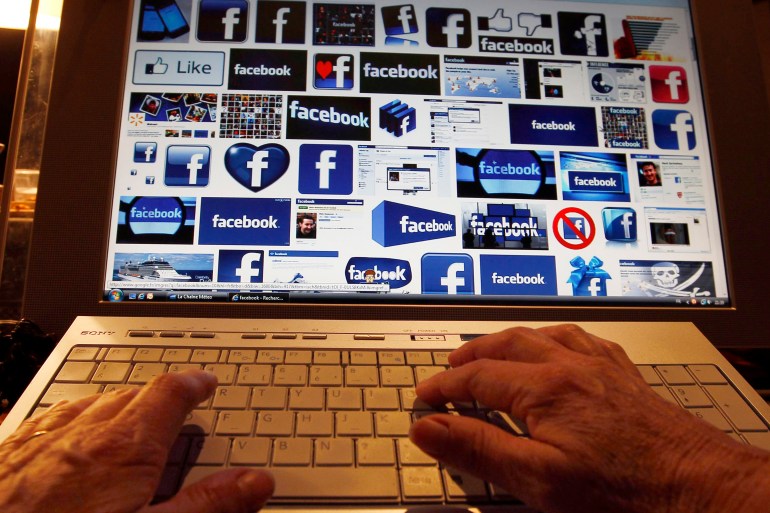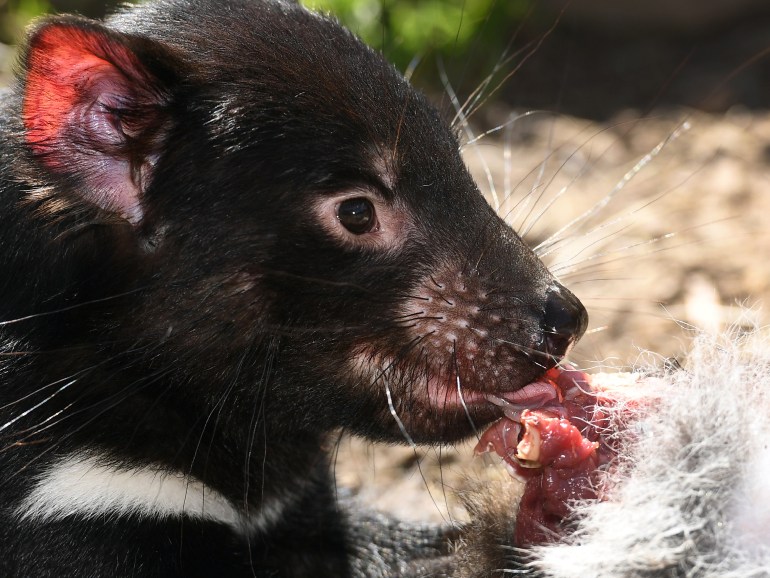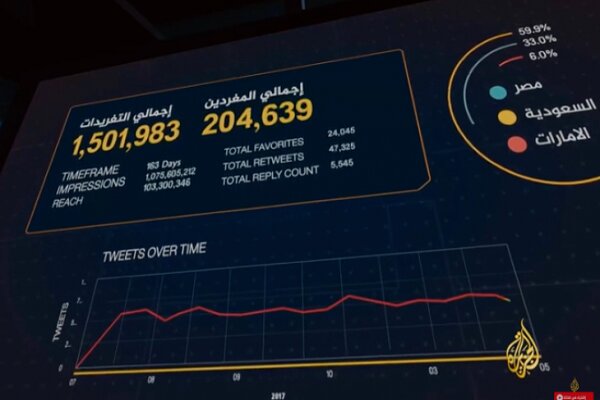by Dartmouth College

Sexist attitudes influence how politicians accused of sexual misconduct are viewed, even more than partisanship, according to a Dartmouth study. The findings are published in Research & Politics.
"Our study shows that partisanship clearly plays a major role in affecting people's favorability about a politician who is accused of #MeToo allegations," explained lead author, Mia Costa, an assistant professor of government at Dartmouth. "Gender attitudes about women however, is really what influences whether and how people react to sexual misconduct scandals, above and beyond partisanship, even though both are obviously important," she said.
The purpose of the study was to understand how partisanship and sexist attitudes affect how voters view political candidates who are accused of sexual allegations. Dartmouth undergraduate students came up with the idea for the study last fall, as part of the course, Experiments in Politics. They wanted to investigate how #MeToo political scandals affect voters' sentiments.
To evaluate how voters react to sexual misconduct allegations, over 2,800 respondents were surveyed online in October 2019. The participants were given a series of pretest and posttest questions to evaluate how favorably they viewed a fictional, male Senator and how likely they would be to vote to reelect him. Respondents were provided a brief biography about the politican and were asked to provide their favorability and reelection ratings. They were then shown a news article that reflected one of three experimental conditions: allegations that the Senator had sexually assaulted women, allegations that he had often made sexist jokes, or a control condition that the Senator had recently visited a county fair. After reading the news article, they were asked how favorably they feel towards the Senator, whether they would vote for his reelection, and what type of punitive consequences he should face, if any, such as whether he should apologize or resign. The Senator's political party affiliation was randomly assigned.
The findings showed that overall, favorability and electoral support decreased after respondents read about the allegations of either sexual assault or sexist jokes, even when they had the same party affiliation as that of the Senator. Reactions were stronger to allegations of sexual assault than sexist jokes.

The results also demonstrated several instances of "partisan motivated reasoning." Partisan motivated reasoning happens when people process information with the aim of protecting their pre-existing, partisan interests. In an era of heightened polarization, "motivated reasoners" prioritize their party identification above all else. Respondents appeared to be more sympathetic to the Senator when they had the same party affiliation. For example, after respondents with the same party as the Senator read about sexual assault allegations, favorability decreased by 31.9 percent as compared to the control while those with the opposite party affiliation decreased their favorability by 38.6 percent. Respondents appeared to be less critical of the allegations of sexist jokes as well if the Senator was from the same party. Favorability decreased by 20.4 percent for those of the same party as compared to 28.5 percent for those of the opposite party, illustrating the degree to which partisanship plays a role. In addition, those who had the same party affiliation as the Senator were less likely to indicate that the he should be penalized (e.g. lose his seat) for sexual assault allegations or making sexist jokes.
The sexual assault allegations and sexist jokes by the Senator had zero effect, however, on favorability and electoral support for respondents who ranked highest on the sexism scale. This means that the most sexist respondents indicated that they would have been just as likely to vote for the Senator had they had not heard about the allegations or sexist jokes. The higher the respondents were on the sexism scale, the less likely they thought that the Senator should be penalized.
The impact of sexual assault allegations and sexist jokes on changes in favorability and electoral support was much larger for women than men. For women, electoral support decreased by 34 percent for assault allegations as compared to 23 percent for men.
When the results were broken out by party affiliation, the data demonstrated that Republicans decrease their favorability and electoral support much less than Democrats do, illustrating a partisan divide on how the #MeToo movement is perceived.
Regarding age, changes in favorability and electoral support was highest among millenials (age 18-24), who decreased favorability by 53 percent and decreased electoral support by 42 percent for the Senator accused of sexual assault, as compared to older age groups, who only decreased by an average of 30 percent and 26 percent, respectively.
"In the last few weeks of the 2016 campaign, the Access Hollywood tapes put issues of sexual assault on the top of the agenda for voters. In 2020, we may very well see such issues resurface and our study helps to understand what consequence, if any, that would have for the outcome of the election," added Costa.
Explore further
More information: Mia Costa et al, How partisanship and sexism influence voters' reactions to political #MeToo scandals, Research & Politics, July 17, 2020
Provided by Dartmouth College












